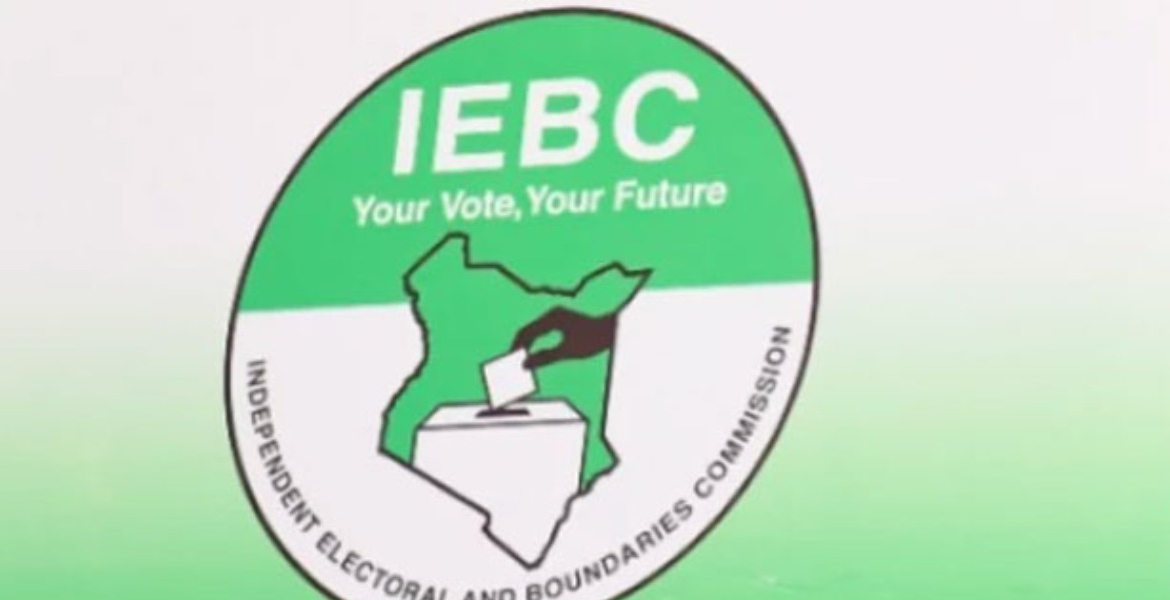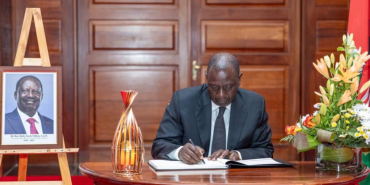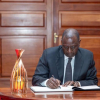Ruto, Raila Allies Among IEBC Nominees, Opposition Demands Transparency

President William Ruto's recent nomination of seven individuals to helm the Independent Electoral and Boundaries Commission (IEBC) in preparation for the 2027 General Election has ignited a fierce political controversy.
Opposition leaders have criticised the appointments, alleging a lack of transparency and bipartisan consultation in the selection process, thus casting a shadow over the neutrality of the body set to oversee Kenya's next national vote. At the centre of the dispute are claims that at least five of the nominees have demonstrable political affiliations, raising concerns about potential bias. Critics argue that their past associations with President Ruto and Orange Democratic Movement (ODM) leader Raila Odinga may compromise the impartiality of the electoral body.
The opposition has formally accused the government of attempting to manipulate the electoral process in favour of the ruling coalition. Wiper Party leader Kalonzo Musyoka has led the charge in expressing concerns, accusing President Ruto of sidelining the principle of consultation in the selection process. Kalonzo asserts that the appointments have fostered a "low-trust institution" and promises a comprehensive statement from the opposition in the coming days.
“We are extremely concerned that President Ruto chose to be partisan by ignoring the principle of consultation and concurrence in his recommendations of the chairman and members of the IEBC,” Kalonzo said.
He also alleges that the appointments are part of a broader scheme to rig the upcoming General Election and by-elections. During a recent public address, Kalonzo reaffirmed his commitment to contesting the presidency in 2027, stating that he would challenge Ruto regardless of the IEBC’s composition, underscoring the high stakes of the debate.
The selection of Erastus Edung Ethekon as IEBC chairperson has particularly drawn attention due to his past association with Josephat Nanok, President Ruto’s Deputy Chief of Staff and former Turkana governor. Ethekon served as Turkana County Attorney during Nanok’s tenure, fueling concerns about his impartiality. Similarly, Moses Alutalala Mukhwana, another nominee, has ties to Prime Cabinet Secretary Musalia Mudavadi, having served as his legal consultant in the now-defunct Amani National Congress (ANC) party.
Mary Karen Sorobit, hailing from Uasin Gishu County, has longstanding connections with President Ruto dating back to his leadership of the United Republican Party (URP). She was also involved in the recruitment of electoral commissioners ahead of the 2017 General Election. Fahima Araphat Abdallah, another nominee, has close ties to Lamu Governor Issa Timamy, a political ally of Mudavadi. Hassan Noor Hassan, a long-serving provincial administrator, is linked to ODM and is reportedly related to National Assembly Minority Leader Junet Mohamed, a confidant of Raila Odinga.
Ann Nderitu, the Registrar of Political Parties, is a former IEBC employee, and her appointment is seen as a continuation of the existing system. Prof. Francis Odhiambo Aduol, a nominee from Kisumu County, previously served as the vice-chancellor of the Technical University of Kenya. Development Action Party of Kenya (DAP-K) leader Eugene Wamalwa echoes Kalonzo's concerns, arguing that the appointments reflect President Ruto’s desperation to secure victory in the next election.
He accuses the government of ignoring the recommendations of the National Dialogue Committee, which had called for bipartisan consultation in the selection of IEBC commissioners. Civil society groups have also raised alarms over the nominations, calling for greater transparency in the process. The Elections Observer Group (ELOG) has demanded the immediate publication of the IEBC recruitment report to ensure accountability.
National Assembly Speaker Moses Wetang’ula has directed the Committee on Justice and Legal Affairs to commence the vetting process for the nominees. In a May 9 communiqué, Wetang’ula emphasised the urgency of reconstituting the IEBC and instructed the committee to table its report upon the House’s resumption on May 27.
“The committee is expected to commence the approval and, thereafter, table its report immediately upon resumption of the House to enable consideration of the nominees within the statutory timelines,” the communiqué stated.
The IEBC selection panel, chaired by Dr. Nelson Makanda, had interviewed 11 candidates for the chairperson position and 107 for commissioner roles before forwarding the final list to the President. Under the IEBC Act, the President is required to submit the nominees to Parliament within seven days, after which Parliament has seven days to approve or reject the appointments.
The IEBC has remained inactive for over two years following the retirement of former chairperson Wafula Chebukati and commissioners Boya Molu and Abdi Guliye in January 2023. Chebukati’s passing in February 2025 further complicated efforts to reconstitute the commission. The absence of a fully functional electoral body has stalled critical processes, including voter registration and preparations for upcoming by-elections. Several constituencies, including Banissa, Mbeere North, Malava, and Kasipul, are set to hold by-elections, alongside various ward-level races.
Baringo County is also preparing for a senatorial by-election following the death of Senator William Cheptumo. Election experts have warned that the new IEBC team will face immense pressure to restore public confidence in the electoral process. The commission will need to address concerns over transparency, ensure fair elections, and oversee the delimitation of electoral boundaries.
A recent report by TIFA revealed that 50 per cent of Kenyans have “no confidence at all” in the integrity of the upcoming 2027 elections. The study cited political interference, corruption, and failures within the IEBC as key concerns. Only 21 per cent of respondents expressed confidence that the elections would be free and fair.








Add new comment